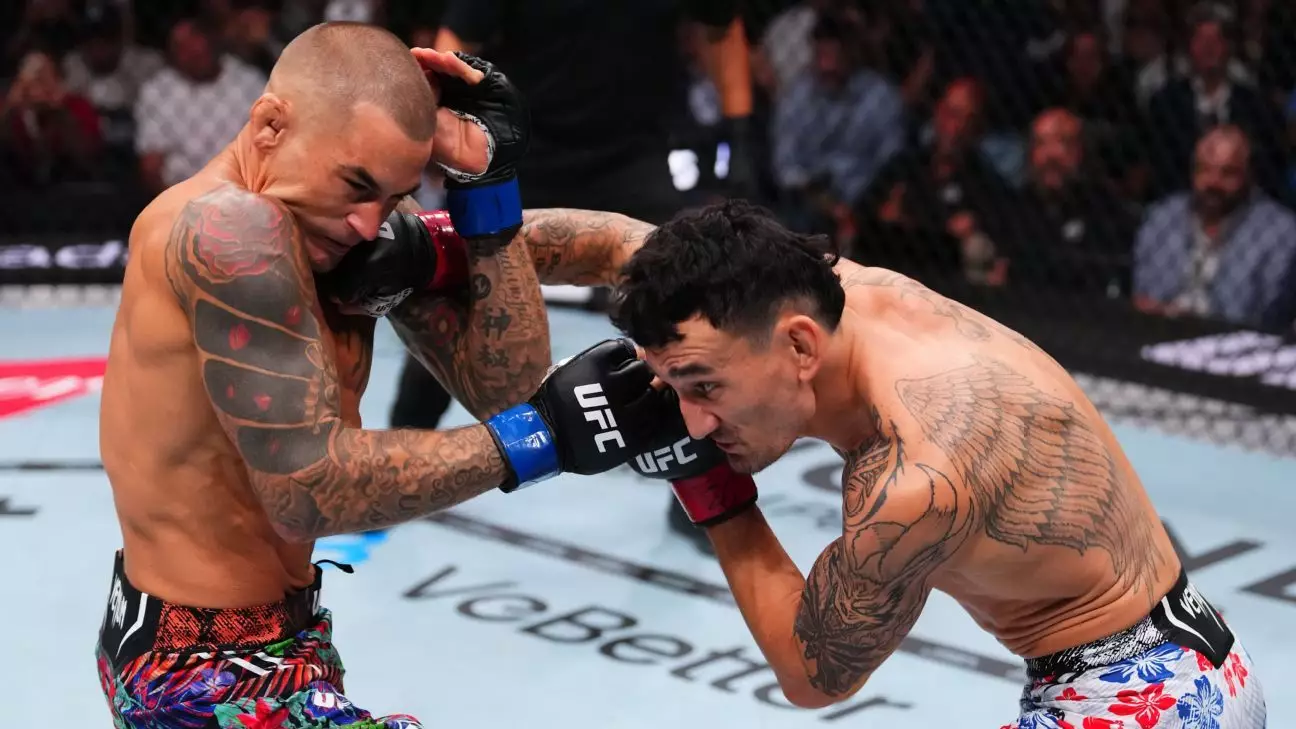Dustin Poirier’s final act in the UFC was neither marked by victory nor defeat in the way legends often dream of, yet it epitomized the true spirit of a fighter. The 36-year-old Louisiana native, in a career spanning 16 years, stepped into the octagon for one last battle—an emotionally charged trilogy fight against Max Holloway. Despite falling short in a unanimous decision loss at UFC 290, Poirier’s legacy is rooted not in ultimate victories but in resilience, heart, and the unyielding pursuit of excellence. The bout provided a fitting farewell, filled with dramatic swings and showcases of raw tenacity, reminding fans of what it truly means to be a champion both inside and outside the cage.
The Significance Beyond the Scoreboard
Rarely does a fighter’s final performance encapsulate their entire journey, but Poirier’s send-off encapsulated his tumultuous yet inspiring saga. From a debut walkout to Lil Wayne’s “A Milli”—a nod to his roots—to the fervent crowd cheering in his hometown of Lafayette, the entire night radiated purpose and pride. Poirier’s humility during post-fight interviews revealed a man deeply grateful for the adulation that he had earned throughout his career, a sentiment that often gets overshadowed by the intense competition and fight-night intensity. His words, reflecting acknowledgment of the love from fans, Louisiana, and his peers, showcased a fighter who understood that true victory lies in inspiring others, in perseverance, and in living his passion authentically.
Analyzing the Fight and Its Deeper Meaning
Physically, the bout was a testament to the brutal beauty of mixed martial arts. Holloway’s relentless volume and precision starkly contrasted with Poirier’s resilience. Despite Holloway connecting more overall strikes—outlanding Poirier 186 to 114—Dustin’s durability shone through. Early in the fight, Holloway’s power visibly challenged Poirier, who repeatedly showed why he’s considered one of the most durable fighters in UFC history. Poirier’s ability to recover, even after being dropped twice, underscored his fighting heart, illustrating that success isn’t measured solely by wins but by courage in adversity.
The strategic elements were palpable. Poirier’s calculated aggression, combined with moments of offensive brilliance like his knockdown of Holloway, demonstrated his capacity to deliver under pressure. The fight’s conclusion—meeting in the middle for a final exchange—served as a symbolic gesture of mutual respect and the inherent unpredictability of MMA. It was poetic, underscoring that sometimes, the noblest battles end not with a decisive victory but with a display of human grit and camaraderie.
Legacy and Impact: More Than Just Wins and Losses
When dissecting Poirier’s career, it’s clear that his impact extends beyond his record. Tied for the fifth-most wins in UFC history with 22 and holding 11 knockouts, his name is etched among the sport’s greats. Yet, what elevates him isn’t merely his stats but his resilience in the face of setbacks—facing some of the greatest fighters in lightweight history like Khabib Nurmagomedov, Charles Oliveira, and Islam Makhachev in title fights. His victory over Holloway in 2019 to claim the interim lightweight belt remains a career highlight, serving as a beacon of his abilities and determination.
More profoundly, Poirier’s journey illustrates that athletic greatness hinges on the character displayed in moments of struggle. His career wasn’t marked solely by triumphs but also by the courage to confront setbacks and ascend anew. His advocacy outside the cage, charitable efforts, and relatable persona make him a figure who embodies perseverance and authenticity. Poirier’s departure from professional fighting isn’t an end but a stepping stone, inspiring aspiring fighters to chase their dreams with relentless passion and unshakeable integrity.
The Cultural and Emotional Weight of a Farewell
Poirier’s choice to fight in Louisiana, his home state, added cultural depth to his farewell. It wasn’t merely about the fight but about honoring his roots—walking out to the same song that launched his UFC journey. These moments humanize the sport, transforming it from a mere contest to a testament of personal history and community connection. His respect for Holloway and the sport itself reflected maturity, a recognition that greatness isn’t just about personal achievement but about the impact one leaves on others.
Despite the result, Poirier’s farewell was a victory of sorts—one that underscores the importance of resilience, character, and authenticity in the world of combat sports. Through the cheers of his homeland, the embrace of his fellow fighters, and his own heartfelt reflections, he proved that success is often measured by how fiercely you fight and how genuinely you live — qualities that will define his legacy long after the final bell.
This final chapter cements Dustin Poirier’s place not just as a fighter with impressive stats, but as a symbol of perseverance, humility, and unwavering passion—truly a champion in the broader sense of the word.

